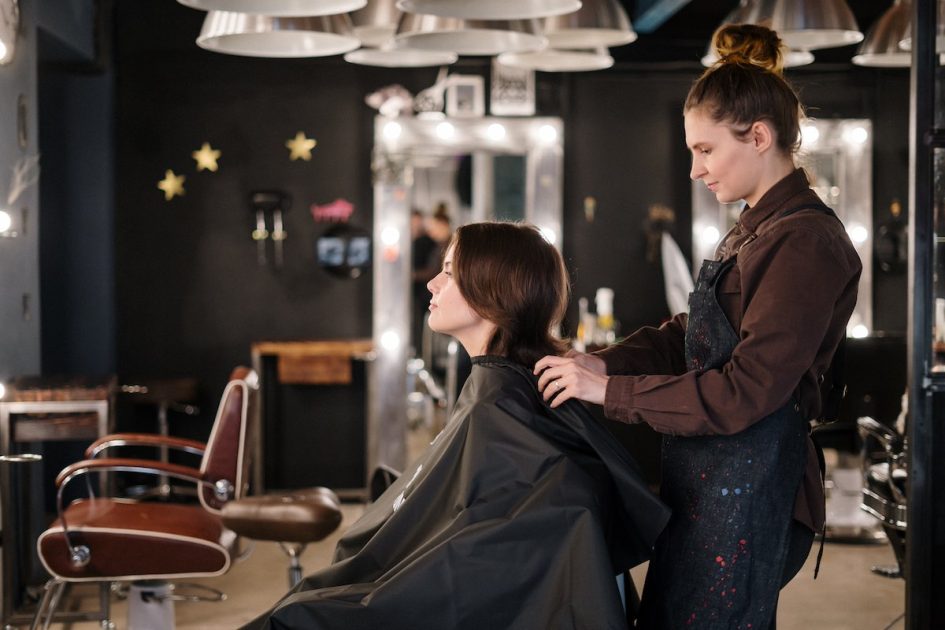Essential Guide to Maximising Hair Salon Tax Deductions for Your Business
Cutting through the maze of tax deductions is key for hair salon owners aiming to keep more money in their pockets at tax time. Our guide demystifies hair salon tax deductions, including both the obvious and often overlooked expenses. Get ready to learn about equipment, travel, education, and other deductions that could lower your tax burden, all written in a straightforward and easy-to-follow style.
Outline
- Maximising Tax Deductions for Hair Salon Owners
- Work-Related Expenses for Hair Salon Employees
- Office Expenses and Overheads
- Travel and Accommodation Expenses
- Personal Grooming and Beauty Products
- Record-Keeping and Documentation
- Summary
- Frequently Asked Questions
Key Takeaways
- Hair salon owners can maximise tax deductions by carefully documenting and claiming eligible expenses such as car and travel expenses, tools and equipment, self-education expenses, and salon overheads like rent and utilities.
- Salon employees are also entitled to deductions for work-related expenses, including uniforms, protective clothing, trade union fees, and professional association memberships, provided proper documentation is maintained.
- Impeccable record-keeping, including receipts, invoices, logbooks, and mileage records, is essential for substantiating all tax deduction claims, and leveraging digital tools like the ATO’s myDeductions can streamline this process.

Maximising Tax Deductions for Hair Salon Owners
As a salon owner, tax time can be overwhelming. But, with the right information at your fingertips, you can maximise your tax deductions and reduce your taxable income. From car expenses to tools and equipment, and even self-education expenses, there are many avenues to claim deductions and get tax relief. Remember, a proficient tax agent can be your best ally when it comes to accurate tax return preparation and maximising your tax deductions.
We will now delve into these categories.
Car Expenses
If you use your own car for work-related tasks, such as meeting clients or suppliers, did you know you can claim deductions on certain vehicle expenses? Yes, salon owners are eligible to claim deductions for parking fees, tolls incurred during work-related trips, and even a standard allowance of 85 cents per kilometre for up to 5,000 kilometres. It is imperative, however, to distinguish between private and business expenses. For instance, personal trips or travel between home and work are not directly related to business and thus, cannot be claimed.
If you use your personal vehicle solely for business use, you can deduct expenses like:
fuel
repairs
lease payments
insurance premiums
registration
depreciation
servicing
Keep in mind, meticulous documentation is necessary to validate these claims.
Tools and Equipment
In the beauty salon industry, the right tools and equipment are not just a necessity, they are the lifeline of your business. From scissors to blow dryers, styling chairs to protective gear, the cost of these tools can add up quickly. The silver lining, however, is that these expenses are all tax-deductible.
Even the expenses incurred for repairing these tools and equipment can be claimed, as long as they are used for professional purposes. Bear in mind, though, you can’t claim deductions for the repair of tools and equipment used for personal purposes.
Moreover, for tools and equipment, the instant asset write-off scheme for businesses is up to $20,000 per asset.
Self-Education Expenses
In a fast-paced industry like beauty and hairdressing, staying on top of the latest trends and techniques is crucial. This often means investing in self-education, such as advanced hair techniques courses. Fortunately, salon owners can claim deductions on a range of self-education expenses, including:
-
course fees
-
union fees
-
stationery
-
textbooks
-
internet usage
Keep in mind, however, that the education must be directly related to your business to be eligible for tax deductions. General knowledge courses or education not directly related to your business are not deductible. Plus, the Australian government’s Skills and Training Boost, introduced in the 2022/23 Federal Budget, offers a $120 tax deduction for every $100 invested in a qualifying training course until June 30, 2024.
Work-Related Expenses for Hair Salon Employees
While salon owners have plenty of potential deductions, salon employees also have their share. From uniforms and protective clothing to union fees and professional association memberships, there are several work-related expenses that you, as a salon employee, can claim for a tax deduction.
We shall dissect these private expenses further.
Uniforms and Protective Clothing
In the hair salon sector, uniforms and personal protective equipment like aprons, gloves, and face masks not only protect you from chemicals and hair clippings but also help to identify your role. These costs, including purchase, rental, repair, and maintenance, are tax-deductible for work related use.
To qualify for these deductions, bear in mind that the uniforms and protective clothing must be specific to your job and distinguishable from everyday wear. In addition, you should maintain receipts or written evidence from the supplier, such as invoices or receipts for the purchase, repair, or laundering of the qualifying clothing.
Union Fees and Professional Association Memberships
Union fees and professional association memberships can also be claimed as tax deductions. These organisations provide invaluable resources for hair salon professionals, from advocacy and legal support to educational seminars and networking opportunities.
In order to be eligible for these deductions, you must be a member of an organisation tied to the hairdressing or barbering industry and utilise the membership in the execution of your professional responsibilities. As for documentation, maintain records of the fees paid, such as receipts or invoices, to substantiate your claims.
Office Expenses and Overheads
Running a successful salon involves more than just providing excellent hair and beauty services. It also involves managing the day-to-day operations, which come with their own set of expenses. Overheads like:
rent
utilities
internet
cleaning service
bookkeeping service
laundry and maintenance costs
office supplies and equipment
All can claim a deduction as income tax deductions.
We will now analyse these expenses in greater detail.
Rent, Utilities, and Internet
One of the largest overheads for a salon business is often the rent. The good news is that as a salon owner, you can deduct the entire cost of rent as a legitimate business expense. This can significantly reduce your taxable income, providing financial relief for your business.
What about utilities such as electricity and water, and internet connection? Yes, these too can be fully deducted as office expenses. However, to claim these deductions, you must ensure that these expenses are directly linked to the generation of income and contribute to reducing the taxable income of your business.
Cleaning Services and Maintenance
Keeping your salon clean and well-maintained not only provides a pleasant environment for your clients but also ensures a safe and healthy workspace for you and your employees. Expenses for cleaning services, maintenance, and repairs can be claimed as tax deductions.
It’s important, however, to maintain detailed records of these expenses. Receipts, invoices, and other documentation from the cleaning and maintenance service providers should be meticulously maintained to validate these deductions.
Travel and Accommodation Expenses
Whether you’re attending a hairdressing conference in another city or seeking advanced training overseas, travel for business purposes comes with its set of expenses. From airfare and accommodation to meals, these costs can add up quickly. But did you know that these travel and accommodation expenses, both domestic and international, can be claimed as tax deductions?
We will now explore this aspect further.
Domestic Travel Expenses
If your business-related travel involves overnight stays, you can claim deductions on expenses such as:
meals
accommodation
fares
incidental expenses
But, remember, only the actual amount spent on work-related travel can be claimed. Furthermore, travel expenses cannot be claimed if there was no overnight stay away from home.
To substantiate these claims, it’s crucial to keep detailed records of your travel expenses. These should include receipts or other written evidence for the travel, dates, places, and the nature of the expenses.
International Travel Expenses
What about international travel for business purposes? Absolutely! Salon owners can deduct international travel expenses, such as accommodation costs, when they are incurred for business purposes. This includes travel for education or training overseas, provided that the expenses are directly linked to your business and self-education, and if traveling away from home is a necessity for your work.
To validate these deductions, though, detailed record-keeping is essential. You should maintain all pertinent receipts and documentation, which will serve as evidence to support your claims.

Personal Grooming and Beauty Products
As a salon owner or employee, you might be wondering if personal grooming and beauty products can be deducted from your taxes. While these are essential in our industry, the rules around claiming these as deductions can be a bit complex.
We will now delve into the specifics of what qualifies as a deduction and what does not.
Non-Deductible Personal Grooming Expenses
In general, personal grooming expenses like hairdressing, cosmetics, and beauty products are not considered tax-deductible. This is because the ATO generally categorises these costs as ‘personal’ and not eligible for deduction. Even if these services are essential for your work, they are not considered tax-deductible.
So, even though you need to look your best to represent your salon, costs associated with your personal appearance, including:
cosmetics or makeup
skin care
shaving products
haircuts
hairdressing
hair products
are typically not deductible.
Deductible Beauty Products and Supplies
On the flip side, beauty products and supplies used directly in your salon business may be claimed as tax deductions. This can include:
tools
equipment
furniture
self-education expenses
clothing
Furthermore, skincare products, makeup, hair care products, and supplies directly used in services can also be claimed as deductions, depending on the goods or services date.
However, maintaining detailed records of these expenses is vital. Make sure to retain all receipts and documentation pertaining to your purchases of these products and supplies. This is essential for claiming tax deductions.
Looking for an accountant for business taxes? Click that link to our article to learn more!
Record-Keeping and Documentation
Whether it’s car expenses, equipment costs, or travel expenses, one thing is clear: meticulous record-keeping is key to maximising your tax deductions. Maintaining detailed records of your income and expenses, along with receipts and other supporting documents, is crucial for substantiating your claims.
We will now probe further into the significance of record-keeping.
Receipts and Invoices
Receipts and invoices serve as evidence of your income and expenses and are crucial for verifying your claims during tax time. They provide a detailed record of your transactions, making it easier for you (or your accountant) to fill out your tax return accurately.
The ATO’s myDeductions tool, provided by the Australian Tax Office, can be a great help in this regard. It allows you to record work-related expenses and receipts digitally, making the process of tracking your expenses much easier.
Logbooks and Mileage Records
Maintaining a logbook and mileage records is necessary for claiming work-related car expenses if you use your car for business purposes. A comprehensive mileage record should include the distance traveled for business purposes, the total distance traveled, and details such as the destination and purpose of each journey.
Remember, for the standard mileage deduction, you need to:
Document the odometer readings at the start and end of each eligible trip
Include the purpose and date of each trip
Keep these records for at least 12 continuous weeks during the income year if using the logbook method
Otherwise, keep your records for five years from when you lodge your tax return.
Summary
Navigating the tax landscape as a hair salon owner or employee can seem daunting. However, understanding your potential tax deductions can significantly benefit your business. From work-related expenses to office overheads, travel costs to beauty supplies, there are numerous avenues to claim deductions and reduce your taxable income. Remember, meticulous record-keeping is key to substantiating your claims. With the right knowledge and strategies, you can turn tax time into a less stressful and more rewarding experience.
Helpful resources to read next
Frequently Asked Questions
What hairdressers can claim on tax?
Hairdressers can claim the cost of buying compulsory uniforms with the salon’s logo, as well as the cost of laundry or dry cleaning for those uniforms. This can be considered as a tax deduction.
Can you claim beauty treatments on tax?
No, beauty treatments such as cosmetics, skincare, and hair products are not tax deductible as they are considered personal expenses.
Is a hairdresser personal services income?
Yes, a hairdresser’s income is considered personal services income (PSI).
What can an apprentice hairdresser claim on tax?
As an apprentice hairdresser, you can claim travel expenses for work-related travel, such as fuel, public transport, and parking fees. Additionally, you can claim tax deductions on work-related products and branded clothing with a company logo.
Can I claim personal grooming expenses as tax deductions for my salon business?
No, personal grooming expenses such as hairdressing, cosmetics, and beauty products are typically not tax-deductible for your salon business.






